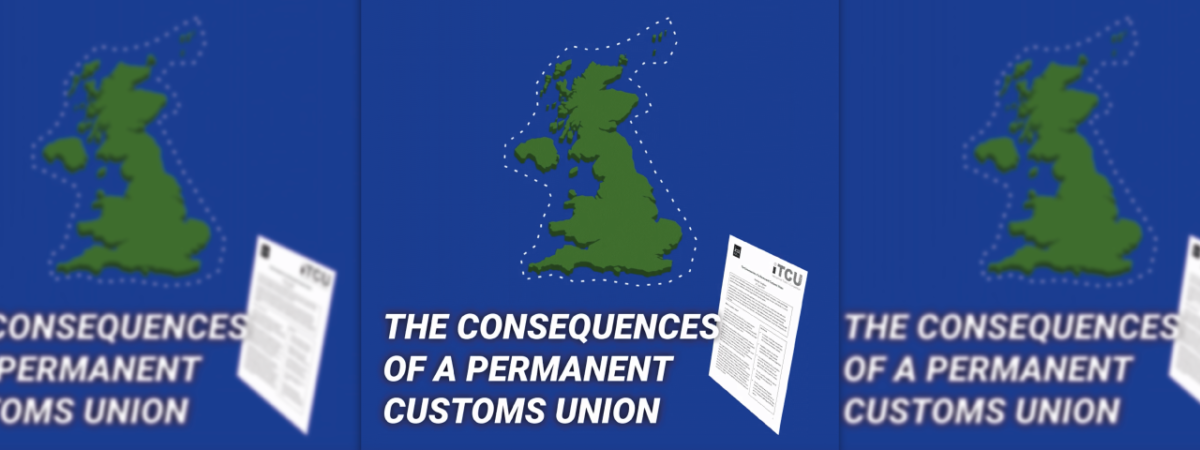The unintended effects of the EU’s crackdown on ‘disinformation’
SUGGESTED



The Code was entered into by Facebook, Twitter, Google and Mozilla and some industry bodies. It was formulated in response to a Commission Communication from April 2018, Tackling online disinformation: a European Approach. It includes ambitious, and rather chilling, provisions for signatories to “invest in technological means to prioritize relevant, authentic and authoritative information in search feeds” and to “dilute the findability of disinformation by improving the findability of trustworthy content”. Who is the judge of relevance, authenticity and authoritativeness? How are web platforms and search engines supposed to determine what is trustworthy? The answer the Commission has in mind seems to be a network of trusted flaggers and fact checkers – ‘independent’, of course, but supported and facilitated by the Commission. Reliance on fact checkers is questionable in general terms due to practical limitations and the risk of bias and error. But reliance on fact checkers supported and endorsed by the state and large incumbent technology companies to filter content is alarming. Apart from the risk to freedom of expression and association, working so closely with large incumbent operators to control content on the internet contradicts the stated policy aim of the Commission and member states to encourage competition in the digital sector.
In fact, as argued by Julian Jessop in the IEA briefing “Supervising the Tech Giants”, “It is notable that ‘fake news’ appears to be more successful where there is less competition – in Russia, for example. Diversity in media sources is therefore essential. Indeed, this may be one way in which the internet actually reduces the threat from ‘fake news’, which is why so many authoritarian regimes choose to restrict access to it.” In Jessop’s view, “the media should be viewed in the same way as any other economic activity. This means that, in general, consumers should be free to decide what to watch, hear and read, without having their choices limited by politicians, regulators or a handful of dominant producers.”
Signatories to the Code of Practice committed to report monthly to the Commission in the run up to the European Elections in May, as established parties worry about being routed by populists and parties that wish to disrupt the status quo in the European Parliament. The Commission’s statement on the latest reports published on 23 April does not mention the difficulties encountered with pan-EU campaigning, but welcomes the efforts on increased transparency, though it calls for “further technical improvements … necessary to allow third party experts, fact checkers and researchers to carry out independent evaluation.” The operation of the Code of Practice seems set to be a textbook example of a regulatory regime that does not improve efficiency, but serves the interests of those with political power, in this case including the tech giants themselves, by building ever greater barriers to entry.
Will this experience of unintended consequences be chastening to legislators, within the EU and in member states, currently competing to see who can be strictest and most serious about cracking down on online harms? In this case MEPs and Commissioners were well placed to signal their irritation at the effect of the Code of Practice and influence the future direction of the regulatory framework and terms of business of the tech giants involved. Most users and providers of digital services do not have this privilege and will bear the costs of ill thought out regulatory interventions for a long time to come.
1 thought on “The unintended effects of the EU’s crackdown on ‘disinformation’”
Comments are closed.





Thank you so much for addressing EU censorship of online political sources. This vital aspect of free speech and open democracy is not getting sufficient media coverage and must be absolutely rejected. The current assaults on freedom of speech and “thought crime” epitomises the worst fears of George Orwell and other future-tellers. Since increasing political censorship in the US came to my attention in August 2018 I have been following its hideous acceleration by Facebook, Google, Twitter, Apple, Microsoft and their various offshoots. At that time 800 large and small independent online media outlets who criticised the surveillance state and the military industrial complex were banned from the main social media. Others have had bank accounts removed in the next stage of “un-personing’, reflective of the dark happenings in China resulting from the inhuman “Social Credit Score” system that is being rolled out.
An insidious next stage of censorship is now underway in the US and coming to the EU, focused on silencing political analysis and opinions that do not support the Democratic party/left wing/deep state agenda, primarily open borders, mass migration and human-induced climate change. Positions which are also being censored are those which challenge US military intervention in other sovereign nations and which question the damage to children from certain vaccines, for which there is, in fact, significant evidence.
The concept of objective fact checking is in itself a fallacy (data can and is constantly manipulated by government, academics, the media and industry) but the level of bias and lack of credibility of the “fact checkers” being paid by Facebook, Google, Twitter etc to classify ideas and analysis as “not acceptable” is frankly extraordinary. There is no way to constitute a fully objective body to fact check what are interpretations and analysis of data that is virtually never without flaws and that is questionable in itself.
The primary selected arbiters all have distinct left-wing orientation, how can their opinions be considered objective, and why should any fact checker’s opinion take precedence over free speech?
The current control of US mainstream media output, most obviously its anti-Trump narrative, derives from the enactment of the Defence Authorization Act and ironically named “Countering Disinformation and Foreign Information & Propaganda” provision which repealed the ban on Government propaganda and enabled Government agencies to spread “news” propaganda. Obama accompanied this with an Executive Order, 24 Dec. 2016, shortly before leaving office, providing over $2 billion of funding to facilitate the CIA and other “defence” agencies’ dissemination of government propaganda.
The additional motivation for mainstream media to fully engage in the demonization and witch-hunting of independent media outlets is mercenary, driven by their failure to provide what the public seeks in terms of information and analysis and their consequent failure in the battle for ratings, which the independents have been winning.
We have been in an accelerating information war since the internet (which originated from documented US military plans for surveillance and control) captured its audience and is now planning to disable all opposition to the mainstream media narrative. Having reviewed the various targets of the censorship purge it is clear that the first target was Alex Jones and his company Infowars.com because of the depth and effectiveness of analysis that his operation undertakes and to which the Democrat party attribute much of the 2016 election of Donald Trump. The destruction of InfoWars has been a clear priority of the mainstream and monopoly social media , not because he is a conspiracy theorist etc. but because his continued operation threatens the next Democrat attempt at regaining power. The individual style and delivery of independent media should be entirely a matter of choice by the viewer/listener who can switch off if they do not like what they see or hear. We will enter a new dark age if the insidious EU proposals for controlling “disinformation” are allowed to proceed.
Tech’s Dark Overlords Keith Spencer
Surveillance Valley: The Secret Military History of the Internet, Yasha Levine
The Code: Silicone Valley & the Remaking of America Margaret O’Mara
The Traitors and Thieves of Silicone Valley Jonathan Tepper
[Sections of this comment have been removed by the editor]